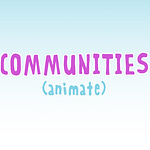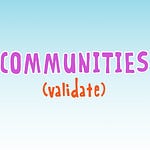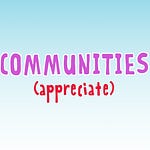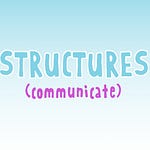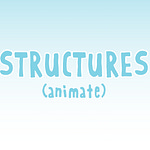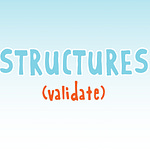Abbie: Hello and welcome to the CosmoParenting Podcast brought to you by the CMM Institute for Personal and Social Evolution. In this space, we invite you to see yourself as someone who is curious about and actively participating in creating your own meaning around parenting.
Today, we are wrapping up our first three themes of the year with a new kind of episode. This is our ‘Relate’ episode, where we will dive a little deeper into the relationship between the three previous themes- Stories, Patterns, and Adaptation.
Let's begin.
*music*
Abbie: Today, I am joined by Savaughn Williams. She is an acting professor in the Department of Communication at the University of Washington, and she specializes in interpersonal communication, focusing on relationships, such as friendships, families, organizational interactions, and more. Savaughn, thanks so much for being here!
Savaughn: Thank you. I'm so happy to be joining y’all.
Abbie: I'm happy to have you join us, too. And I'm really excited because this is our first of this kind of episode. And we have just simply so much to talk about. So, we're going to do our best to cover the last three themes- Stories, Patterns, and Adaptation all together. So Savaughn, I'm going to leave this wide open for you and just ask, what are you thinking about right now about stories, patterns, and adaptation?
Savaughn: Yeah, so listening through, I really was inspired by the stories that each of the parents were telling. And it made me think about my own story as an adult child. And so, really, when I thought about Stories, Patterns, and Adaptations, I was thinking about this period of time where I was negotiating my identity.
In grad school, in one of the courses that I took, I actually decided to utilize autoethnography, which is just like a journalistic style of writing and research, to further explore this interaction I had with my friends and my family.
And so I had a conversation with my friends around interracial relationships. And during this conversation, I had sided with my friend who identifies as white. I myself am African-American.
When I shared this story with my mother, who I talk to every day, she actually sided with my other friend who is also African-American. And so I was confused because I couldn't understand why I wasn't connecting with that identity. And so what this led to was me questioning: where was I taught about this?
And so that reflection led me back to my home, and it led me back to the narratives that I had growing up. These ideas of like the stories that I have experienced, as well as the patterns that I picked up while living in a predominantly white state- which is Oklahoma- as well as what I adapted to.
So, really, writing about my reflection was a moment for me to adapt. Because I couldn't understand where the disconnect was between my identity, and my family, and/ or assumed identity. And so it really was about me reflecting and adapting to this new identity, which all of that just went back to me thinking through what I learned from my parents.
So all of these messages around how I was understanding not only the external world, but my own identity helped me better understand myself, but not only myself, but also my mother as well.
So, that overall reflection really helped me better understand how and why my mother operates the way that she does and it was important for me to understand that- even in my 20s- because it helped me better understand who she is, and what her stories are, and what patterns she picked up, and why she picked them up.
So, it just really further justifies the need for looking at stories, patterns, and adaptations, not only from the perspective of a parent to a child, but also a child to a parent.
Abbie: Mmhmm. Yeah. Savaughn, you've drawn such a beautiful line between these three themes and how they relate to each other. And an identity that, you know, maybe isn't at the forefront of all the conversations we're having is that all the people who are parenting, that I'm hoping are listening to this podcast, are also themselves children of parents.
And so you're offering, I think, a really meaningful way to zoom out even further on your parenting to think about how you yourself were parented and to recognize that what you can learn from or about your parents doesn't stop when you leave home, when you graduate, when you move away, you know, whatever the path looks like.
Although many of our conversations and many of the stories that are told here, I think, focus on or come from people who are parenting young children right now, that's that adaptation piece- that you can tell the stories, and you can build the patterns, and you can unlearn the stories, and you can deconstruct the patterns and that process is something that's going to continually need to adapt for the rest of both the parent and the child's life. And I'm curious to kind of build on that what the Family Communication perspective would be on everything we've already started talking about today.
Savaughn: In Family Communication, we know that having a shared family identity, it provides people with a touchstone or foundation to return to in those moments of identity negotiation.
So, in the classroom, when I'm teaching Family Comm, one of the assignments I have is that I ask them to interview. The biggest thing that they got out of it was actually being able to talk to their parents in a way that provided them with some of the stories that they're missing, right?
So, even this idea- I think in the last podcast- really talked about how when we're adapting, like sometimes it's a matter of practicing. And so even having students, like, do this assignment and recognizing, like, I asked these really like open ended questions and my family members answered them. I can actually utilize these questions to just talk to my family. It doesn't have to be in this structured interview space. I can adapt.
And I think that seeing students, particularly like their parents, then make comments on the fact that like they had these in-depth conversations about their experience as parents and it being very meaningful to their parents.
So, even having students say like, I didn't know that my dad loved talking about this type of stuff.
Abbie: Ha ha ha! Yeah.
Savaughn: Right. And it's like, yeah, it's because they've lived the story. They've created these patterns for you. And now they're adapting to this new distance that has been created around entering into college. Right.
And so it was just really inspiring to see students recognize that exactly what you said. Right. Not only are they adult children, but their parents are adult children.
Abbie: Mmhmm. Mmhmm.
Savaughn: Right. So like understanding that those moments in the classroom where they are thinking about their family communication, they are asking questions around like, how do I get through this conflict? Right. They are interrogating kind of like their experiences growing up. It's the perfect moment for them to actually take a step back and have that zoom out moment to be like, wow, my parents weren't always parents.
Abbie: Mmhmm.
Savaughn: They also were like me at some point, right? And so just being able to do that, I think at their age, early on- while I do have non-traditional students, mostly they are around the age of 18 to 23- and so having that assignment in the class does create this open door that they can walk through to actually consider how they've been parented as well as how their parents have been parented and how that, in and of itself, has created like a system of beliefs that you know, right?
And recognizing even patterns that they don't want to keep, and patterns that they want to release, or patterns that they want to create. I think I had one student who was like, the participant said they like really loved their father, but then they also said they would never have kids because of the way they were raised. And so even being able to recognize, like, both can exist.
Abbie: Yeah. Yeah. Oh my God. Such a complexity. And I'm just feeling, like, so obsessed with this language of being an adult child, because it really touches on the kind of complexity and the being in the middle of two identities.
And if you're an adult child, then you're an adult child of an adult child of an adult child, you know, on and on and on in this context feels so important. So I'm- I'm loving this. And the other thing I want to pull out of what you've said is, yeah, zooming in and zooming out that I think is required and helpful when you're thinking about really each of these three themes, because you have large stories that we internalize that exist- like cultural narratives.
We have patterns that are generational and are carried on. We've got, you know, adaptation in a kind of like evolutionary sense we think of that word- like a whole species can adapt.
And at the same time, we have the stories of our day-to-day lives and moments. We have the patterns that happen in those same days and moments, the little patterns we perpetuate. And then there's small ways that we can adapt and change moment to moment.
And so I think it's so helpful to be able to look at all three of these things on both of those levels.
So, Savaughn, thank you so much for the perspective and the stories you shared today.
And to everyone listening, thank you for joining us too. Don't forget to check out www.cosmoactivities.com for our other free resources in this series. And be sure to comment on this podcast episode on the CosmoParenting Substack.
We're so grateful to be on this journey with you, and we will look forward to joining you next week for the first episode of our relationships theme.
*music*




